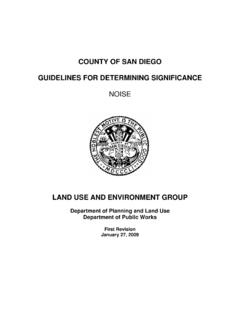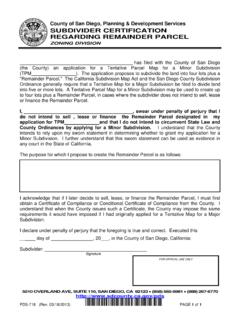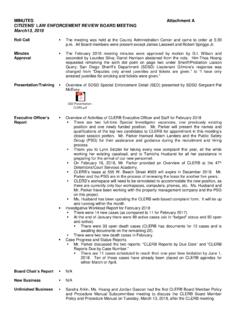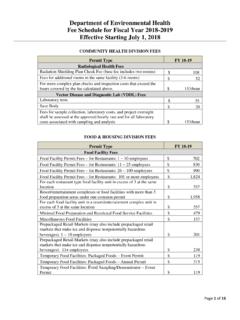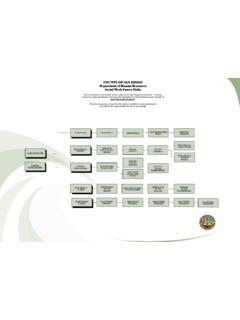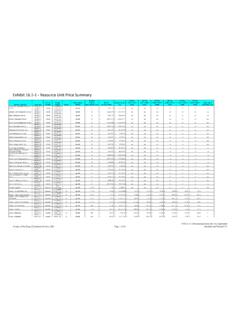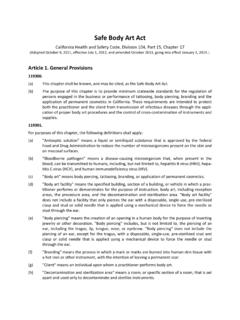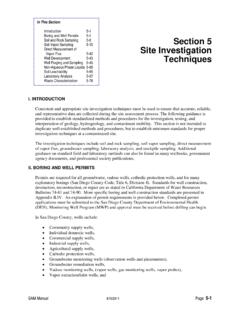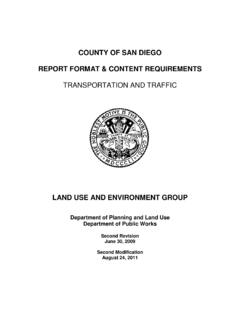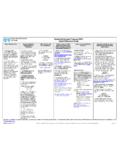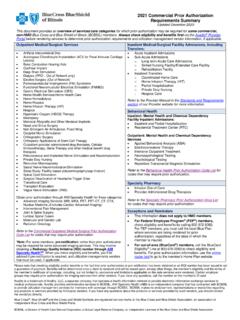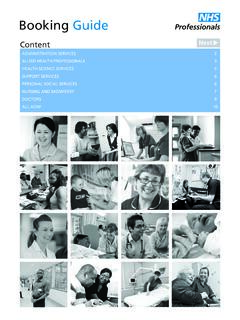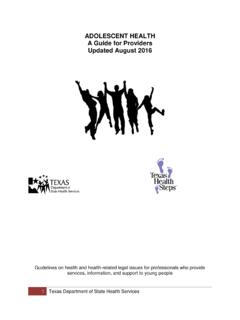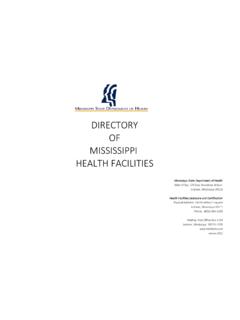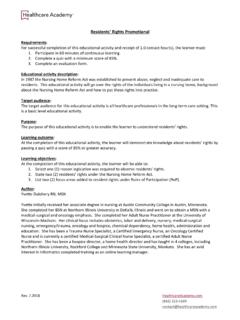Transcription of Addiction Counseling Competencies: The Knowledge, Skills ...
1 Addiction CounselingCompetencies:The knowledge , Skills , andAttitudes of professional PracticeTechnical Assistance Publication Series21 Addiction Technology Transfer CentersNational Curriculum DEPARTMENT OF HEALTH AND HUMAN SERVICESP ublic Health ServiceSubstance Abuse and Mental Health Services AdministrationRockwall II, 5600 Fishers LaneRockville, MD 20857 This publication was prepared under the Addiction Technology Transfer Centerscooperative agreement from the Center for Substance Abuse Treatment (CSAT) of theSubstance Abuse and Mental Health Services Administration (SAMHSA). Susanne , CSAT, served as the Government project officer.
2 All material appearing in thisvolume is in the public domain and may be reproduced or copied without permissionfrom CSAT or the authors. Citation of the source is opinions expressed herein are the views of the authors and do notnecessarily reflect the official position of CSAT or any other part of the Departmentof Health and Human Services (DHHS).DHHS Publication No. (SMA)98-3171 Printed 1998 National Curriculum CommitteeAddiction Counseling CompetenciesiTABLE OF CONTENTSP reface .. 1 Introduction .. 3 Acknowledgments .. 6 Section 1: Transdisciplinary Foundations .. 11 Introduction to the Transdisciplinary Foundations.
3 Foundations .. 13A. Understanding Addiction .. 13 B. Treatment knowledge .. 15C. Application to Practice .. 17D. professional Readiness .. 21 Section 2: The professional Practice of Addiction Counseling .. 24 Introduction to the ProfessionalPractice of Addiction Counseling .. Evaluation .. 27A. Screening .. 27B. Assessment .. 33II. Treatment Planning .. 36 III. Referral .. 43IV. Service Coordination ..49A. Implementing the Treatment Plan .. 49B. Consulting ..54C. Continuing Assessment and Treatment Planning .. 57 Addiction Technology Transfer ProgramiiTable of.
4 63A. Individual Counseling .. 63B. Group Counseling .. 72C. Counseling Families, Couples, and Significant Others .. , Family, andCommunity Education ..80 VII. Documentation ..85 andEthical Responsibilities ..90 Appendix A References .. 97 Appendix B Glossary of Terms ..103 Appendix C Addiction Counseling competencies .. 107 National Curriculum CommitteeAddiction Counseling Competencies1 PREFACEThis document presents the knowledge , Skills , and attitudes that are needed forachieving and practicing the competencies listed in Addiction CounselingCompetencies (included as Appendix C).
5 The document is intended to provideguidance for the professional treatment of substance use disorders which has becomerecognized as a complex multidisciplinary practice supported by a large and rapidlyexpanding body of theoretical and scientific literature. Both public and private researchinitiatives have repeatedly demonstrated the cost effectiveness of well designedstrategies for intervening with people suffering from the adverse consequences of bothsubstance abuse and our understanding for how best to interrupt the destructive course ofsubstance abuse problems has grown, the parallel process of preparing treatmentprofessionals has also been developing.
6 Addiction specialties have recently emergedin medicine, nursing, and other allied health and human service professions. Theprimary care givers, however, have traditionally been counselors who specialize inchemical dependency treatment. Historically, those counselors have been trained inspecialty training programs often developed by treatment agencies rather than inacademic institutions. Today, due to a variety of policy and economic factors, thepreparation of substance abuse counselors is being undertaken by colleges incooperation with treatment agencies, where classroom and field training experiencesare being integrated into competency-based instructional 1993 the Center for Substance Abuse Treatment (CSAT) created theAddiction Technology Transfer Center (ATTC) Program, comprised of elevengeographically dispersed centers covering twenty-four states and Puerto Rico, to fosterimprovements in the preparation of Addiction treatment professionals.
7 As part of thatprogram the ATTC National Curriculum Committee (the Committee) was established toevaluate existing curricula and establish priorities for curriculum development. TheCommittee s first activity was to define the competencies essential to the effectivepractice of Counseling for psychoactive substance use disorders. Those competenciescould then be used as criteria for evaluating curriculum addition to its own original contribution, the Committee reviewed andincorporated existing literature related to the work of the Addiction counselor (Birch &Davis, 1986; ICRC, 1991). The result of the Committee s effort was the 1995publication of Addiction Counselor competencies .
8 Subsequently, the ATTC sconducted a national survey to validate the competencies . Results indicated broadsupport for virtually all of the competencies as essential to the practice of Technology Transfer Program2 PrefaceThe Committee then began the process of delineating the knowledge , Skills , andattitudes (KSAs) that make up each of the 121 competencies listed in the AddictionCounselor competencies . During the development of the KSAs, the Committee elicitedinput from professional organizations including the International CertificationReciprocity Consortium (ICRC), the National Association of Alcoholism and Drug AbuseCounselors (NAADAC), the American Psychological Association, the NationalAssociation of State Alcohol & Drug Abuse Directors, and the International Coalition ofAddiction Studies Educators (INCASE).
9 Field reviewers also made significantcontributions to the final product that appears EffortIn November 1996, ICRC convened a meeting of representatives from a numberof national organizations, which represent the professional Addiction Counseling field,to deliberate the need for model counselor training curricula. The group concluded thatmuch of the work to define such a curriculum standard had been completed by theATTC National Curriculum Committee and the ICRC. The work included a draft ofAddiction Counseling competencies : The knowledge , Skills , and Attitudes ofProfessional Practice and the 1996 Role Delineation Study, respectively.
10 Only amodest amount of work remained to finalize a document that could be used as anational standard. CSAT agreed to support an expanded collaborative effort andconvened a panel representing key educational, certification, and professionalassociations to complete the work. This group is the National Steering Committee onAddiction Counseling Standards. It is comprised of representatives from CSAT, theATTC National Curriculum Committee, ICRC, NAADAC, INCASE, and the AmericanAcademy of Health Care Providers in the Addictive National Steering Committee reviewed the 1996 ICRC Role DelineationStudy and a draft of the Addiction Counseling competencies : The knowledge , Skills ,and Attitudes of professional Practice (1997).
